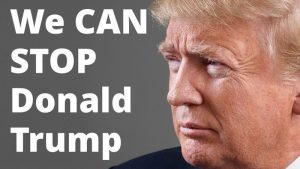(Akiit.com) The list of places where citizens have turned out to protest the killing of George Floyd is long and varied. Not just Minneapolis, New York, Los Angeles, Chicago and other big cities, but cities whose names are unfamiliar to most people.
Galesburg, Illinois. Opelika, Alabama. Keene, New York. Sandusky, Ohio. Abilene, Texas. Fontana, California. Grand Island, Nebraska. More than 350 cities are known to have had protests, in one of the biggest, broadest expressions of public discontent in American history.
It came as a surprise. Americans have seen black people needlessly killed by police on video before, all too many times. It’s no revelation that cops sometimes resort to deadly force without justification. What makes this moment so different?
The excruciating footage of Floyd having the life squeezed out of him obviously had a galvanizing effect — outraging even the president of the notoriously hard-line Chicago police union. Nothing could have more vividly dramatized what black people fear from cops.
For African Americans, though, there has been a feeling of being under constant siege since Jan. 20, 2017. The first black president, who roused such hopes of racial progress, turned the White House over to someone who has never been shy about his bigotry or his soft spot for bigots.
After the 1989 arrest of the Central Park Five, Donald Trump took out a full-page ad demanding the restoration of New York’s death penalty — and when they were exonerated, he refused to admit their innocence. He claimed that President Barack Obama was born abroad and that he was “a terrible student” who should never have been admitted to Harvard Law School — from which Obama graduated magna cum laude.
White supremacists had no trouble recognizing candidate Trump as their beau ideal. He won high praise from David Duke and the Ku Klux Klan and was tardy and perfunctory in disavowing them. As president, he had generous words for the white nationalists (“some very fine people”) who marched in Charlottesville, Virginia, in 2017. He referred to Haiti and African nations as “s—-hole countries.”
For the entirety of his presidency, most African Americans have had to realize they could expect no understanding, support or genuine concern from Trump. Unlike other Republican presidents, he made no pretense of representing all Americans: His heart was with aggrieved white people. A Pew Research poll last year found that 84% of black Americans viewed his performance unfavorably.
African Americans had a president, Obama, who held out hope of finally achieving the dream of equality — followed by a president who is a living nightmare. One black woman old enough to remember Jim Crow told me, “He wants to take us back there.”
Perhaps we shouldn’t have been surprised to see the sudden eruption of black fury after Floyd’s death. Perhaps the real surprise is that it took so long to occur despite repeated provocations from this president.
But not all of those who took to the streets to protest were black. There were plenty of others too. August Nimtz Jr., a black professor of African American and African Studies at the University of Minnesota, wrote that he had to “marvel at the racially diverse composition of anti-police brutality protests today, virtually absent in the 1960s. Tuesday’s action, like 1992, was in its majority Caucasian.”
This presence owes much to the parade of video proof of the persistence of discrimination in American society, which opened the eyes of many whites. But Trump deserves a share of the credit for personifying the problem, making it even harder to overlook.
According to the website FiveThirtyEight, “White Americans, particularly those who are younger, college-educated or liberal-leaning, have shifted their views on racial issues in the last several years, increasingly saying that they view the United States and many of its policies as discriminatory against black people.”
This time, when African Americans turned out to protest, they found a wealth of new allies marching with them. A Reuters/Ipsos poll taken on Monday and Tuesday confirmed that this no illusion. Two out of three Americans — including a majority of rural residents — said they were “sympathetic to people who are out protesting right now.” Even the violence and vandalism that occurred in some places didn’t distract attention from the real grievances behind the demonstrations.
Trump has tried his best to widen the divide between black and white Americans. But in doing so, he has inadvertently prodded them into a new unity for racial justice.
Columnist; Steve Chapman
Official website; http://Twitter.com/SteveChapman13








Leave a Reply